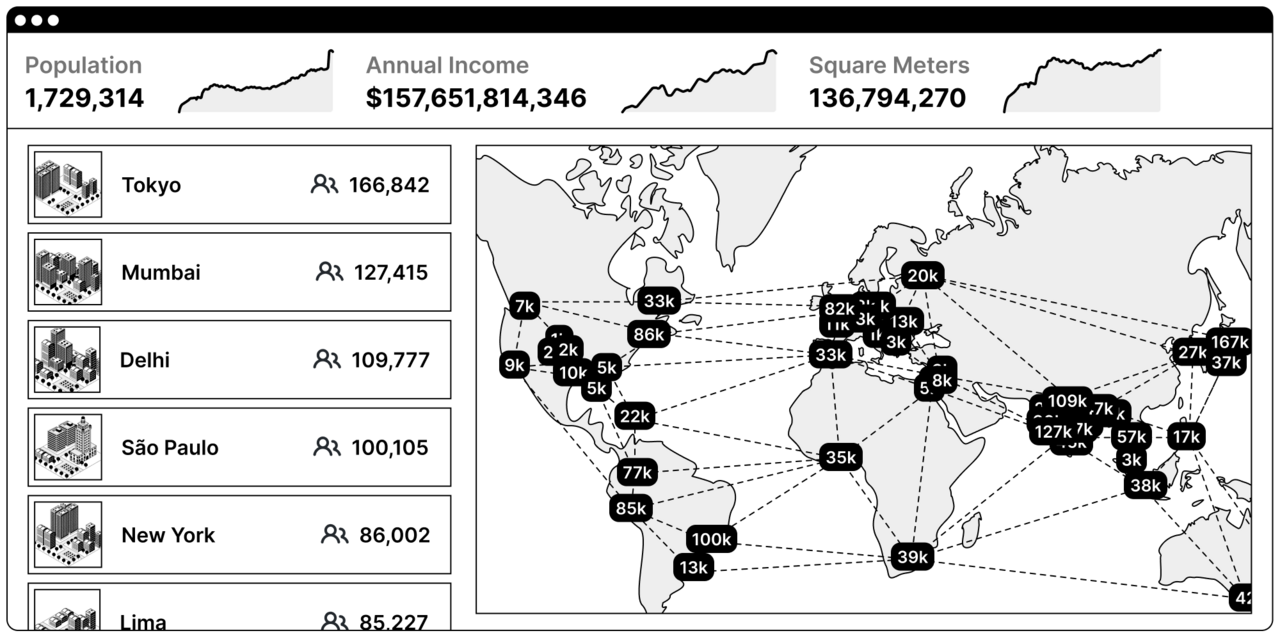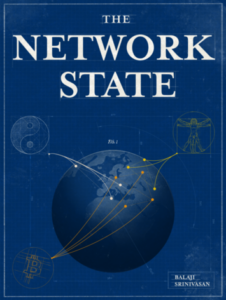Re-wilding the Algorithm
The hacker folk art of esoteric programming languages yields insights into glitch as a practice that hijacks existing algorithms to emphasize plurality and freedom.

“…but the best part is this: the people who think this is weird, the people who sneer at the frontier, who hate technology—they won’t follow you out there.”
—Balaji Srinivasan, “Silicon Valley’s Ultimate Exit.” talk given at the Y Combinator Startup School in 2013

In the 1930s, the Polish-American scientist and philosopher Alfred Korzybski remarked that “the map is not the territory”—meaning that conceptual models of reality should not be confused with reality itself. This is not to say that conceptual models are useless, but that they need to be paired with critical thinking. All models are wrong, but some are useful. Balaji Srinivasan’s The Network State—a book published last year as a series of writings on a website that he sometimes updates and expands—proposes a new kind of statecraft that utilizes network technologies to augment certain attributes of human networks. But Srinivasan’s models are not only wrong, but not very useful either. They rely too much on breezy assumptions about the use of land, treating it as a form of techno-capital detached from physical reality.
Srinivasan has been the CTO of the crypto exchange Coinbase and a general partner at venture capital firm Andreessen Horowitz. He made much of his wealth from selling his genomics company Counsyl for 375 million USD. Over the last decade he has consistently advocated for exit from mainstream society. In 2013 he gave a talk at the startup accelerator Y Combinator about building an opt-in society run by technology outside US jurisdiction—Silicon Valley’s “Ultimate Exit.” The Trump administration considered appointing him commissioner of the Food and Drug Administration, even though he believes in abolishing it. He rants against wokeism on Twitter and associates with Curtis Yarvin, an alt-right monarchist blogger. When thinking about Srinivasan, I often recall the villain from the 2007 video game Bioshock, business magnate Andrew Ryan, whose lengthy anti-state, pro-market monologues justify the existence of his underwater city Rapture, from which the player must escape.
Land and society are not like a codebase that can be forked without addressing geopolitical realities.
Srinivasan offers definitions of the network state at various scales—in a sentence, a paragraph, an essay, and an image. In short, the creation of a network state involves ideologically aligned people pooling their money to buy land that doesn’t need to be contiguous, use cryptocurrency, and achieve diplomatic recognition. His political theory is adapted from the seventeenth-century thinker Thomas Hobbes, who used the term “Leviathans” to name forces that hover over men and make them behave pro-socially. Srinivasan’s Leviathans are God, State, and Network. God has lost dominance to the State, he says, and now three-letter acronyms wage war in a tripolar “digital struggle.” Crypto Capital (BTC), according to Srinivasan, is the Network capable of overtaking the Communist (CCP) and Woke Capital (NYT) Networks, which lead the Chinese and American States, respectively. (Interestingly, Hobbes believed the only thing that could save man from the chaos of civil war was a strong, undivided government, making him a strange influence for Srinivasan.)
The conceptual framework of The Network State notably omits capital. Often incorrectly thought of as synonymous with money or commodities, capital is a relationship of production that encourages the accumulation of wealth. Capital is a control system for moving labor toward certain endeavors, with feedback loops that intensify its position of power over the workforce. It is a disciplinary relationship that uses markets as its weapon to ensure that those who sell their labor to make ends meet don’t realize their collective power. Land is often caught up in capital’s loops, and it is an essential tool of imperialism and colonialism. The Network State takes this a step further by turning everything, including land, over to techno-capital.


Srinivasan’s map of society mimics the tech startup’s playbook. He proposes network states as parallel societies set apart from the mainstream by a single “moral innovation,” much like a new company must offer a market-disrupting product. Possible examples of such innovations that Srinivasan gives include the keto diet, cancel culture insurance, and abolishing the regulation of food and drugs. The Network State offers no analysis for the role of land in statecraft. Srinivasan simply assumes that those interested in starting a state must buy land, like the investment one would make into a tech company. He describes startup societies as “forks” of mainstream societies, a metaphor borrowed from software development, where engineers copy a codebase to start a new, separate project that can be developed independently. Forking has also created blockchains like Ethereum Classic or Bitcoin Cash, both of which are now largely dormant.
The obvious problem with applying these digital models to physical aspects of society is that digital space is near limitless, whereas human attention and land are not. These are things that cannot be forked, only taken, especially when the vast majority of land already exists within some nation-state’s sovereign jurisdiction. Ultimately, prioritizing exit as the best governance mechanism for fixing problems encourages self-segregation through force for the rich.
And so a network state in practice can only be neocolonialist, as significant amounts of capital would need to be raised to purchase enough land to give investors the confidence to pressure existing governments to concede to their desires. In all likelihood, land would be purchased in poor, previously colonized countries that can be more easily swayed by foreign capital. Network states would thus be nothing more than deregulated micronations, like free trade zones but more cultish. This has never succeeded. Próspera, a crypto-libertarian proto-network state in Honduras, raised 100 million USD, but still must abide by Honduran law. The concept of a network state feels like a Band-Aid on the current problems of nation-state governance. The neoliberalization of land has already caused a fork in society, separating land from the people who use it so it can be a financialized asset—leading to inequality, ecological destruction, and displacement. Network states would only further entrench these problems.
Ironically, Srinivasan’s metaphors invert those of virtual real estate. Projects like Decentraland and Sandbox allow users to buy and sell parcels of digital land in their metaverse environments, which limit the total amount of land. A virtual real estate bubble peaked at the end of 2021, with sales prices dropping by 85 percent in 2022. Both The Network State and Decentraland treat land as a form of capital rather than as something linked to the sociocultural practices of those who use it. The first imposes digital metaphors on land that doesn’t acknowledge its physical scarcity, and the second imposes physical limitations on digital land despite the digital affordances of abundance. Both presume that land ought to be financialized when, for the vast majority of human existence, land was not treated as capital, nor could it be. The concept of land as private property is a recent development, beginning in England in the 1500s, when the nobility began enclosing lands intended for common use among the peasants for their own private use instead. This regime change developed into our current model of private property based on artificial scarcity.
The best parts of the cryptocurrency space exist where builders have surpassed representational thinking.
The metaphors and representations we use to create maps for understanding the complex territory we inhabit always have some logic embedded in them that needs to be critically analyzed. The French post-Marxist philosopher Gilles Deleuze published his critique of representational thinking amid civil unrest throughout France in May 1968. Popular philosophy YouTuber Jonas Čeika has explained Deleuze’s critique using the example of the drum machine, originally created as a tool for musicians to use in situations where a drummer isn’t available for their ensemble. Instead of limiting the drum machine to its representation, musicians have pushed it to do things a human drummer could never match, thereby creating new genres of music. Deleuze argues that the imagination is often limited by representational thinking; this is especially true of Srinivasan’s work, hemmed in by the logic of techno-capital.
The best parts of the cryptocurrency space exist where builders have surpassed representational thinking to produce alternative use cases for finance, art, and social organization that go beyond crypto’s model of digital gold. But there is still a long way to go. The real Leviathan in Balaji’s work is capital, and its role and power need to be interrogated by participants of the wider crypto community if we want to move beyond the representational models of the past that hold us back. Land and society are not like a codebase that can be forked without addressing geopolitical realities. The map of Silicon Valley venture capital is the wrong map for many things. I’m all for using crypto to explore alternative ways of living, but just as the drum machine gave the technical affordances for artists to create new kinds of music, crypto’s affordances should be used to create new genres of social relations, instead of offering more of the same from Silicon Valley.
Joshua Dávila hosts the podcast “The Blockchain Socialist,” which is currently exploring Srinivasan’s book and critiques of it in the series “Overthrowing the Network State,” produced in cooperation with Blockchaingov. His book Blockchain Radicals will be published by Repeater Books in August 2023.
